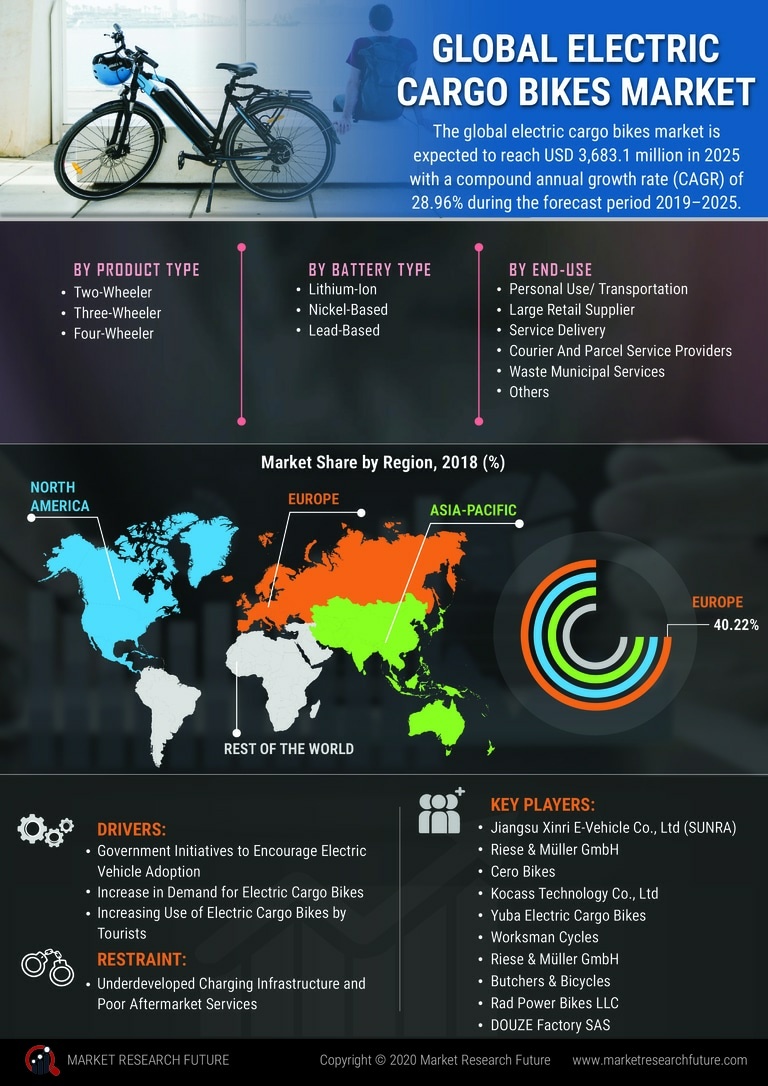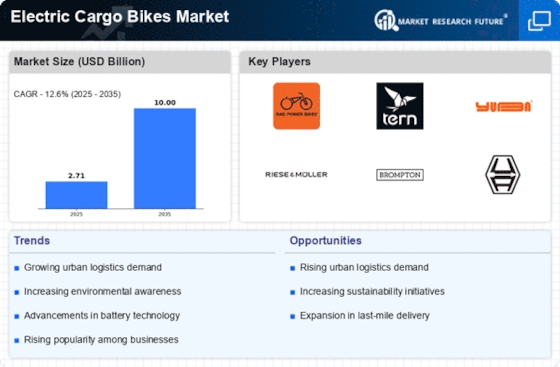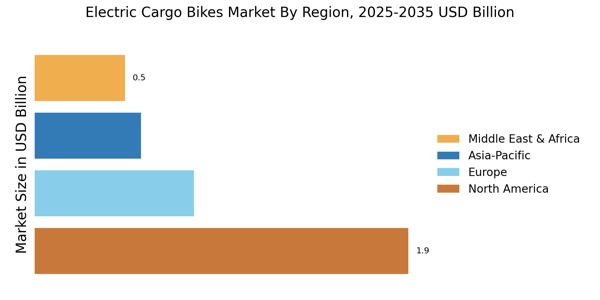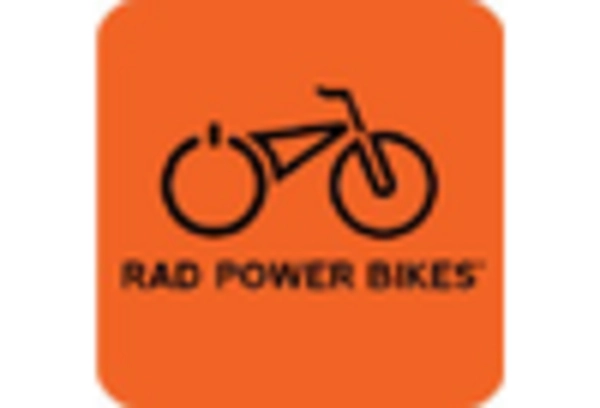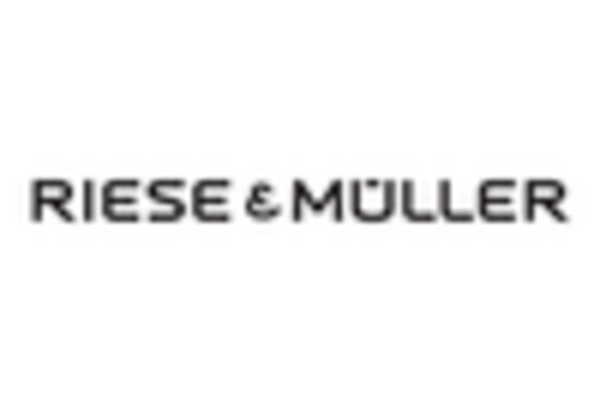Government Incentives
Government incentives play a crucial role in propelling the Electric Cargo Bikes Industry forward. Many governments are implementing subsidies and tax breaks to encourage the adoption of electric vehicles, including cargo bikes. These financial incentives lower the initial investment barrier for businesses and consumers, making electric cargo bikes a more attractive option. Recent statistics reveal that regions offering such incentives have seen a 40% increase in electric cargo bike sales. This trend indicates that as more governments recognize the benefits of electric cargo bikes for reducing urban congestion and emissions, the Electric Cargo Bike Market is likely to experience accelerated growth.
Urban Delivery Demand
The surge in urban delivery demand is significantly influencing the E-Cargo Bike Market. With the rise of e-commerce and the need for efficient last-mile delivery solutions, electric cargo bikes offer a practical alternative to traditional delivery vehicles. Data indicates that the last-mile delivery segment is expected to grow at a compound annual growth rate of over 15% in the coming years. This growth is driven by the need for faster, more efficient delivery methods that can navigate congested urban environments. Electric cargo bikes, with their ability to maneuver through traffic and access restricted areas, are becoming increasingly popular among delivery companies. This trend suggests a robust future for the Electric Cargo Bike Market as it adapts to meet the evolving demands of urban logistics.
Technological Innovations
Technological innovations are reshaping the Electric Cargo Bikes Market, enhancing performance and user experience. Advances in battery technology, such as increased energy density and faster charging times, are making electric cargo bikes more appealing to consumers and businesses. Additionally, the integration of smart technologies, including GPS tracking and IoT connectivity, is improving operational efficiency for logistics providers. Market data shows that the adoption of smart features in electric cargo bikes can lead to a 20% increase in delivery efficiency. As these technologies continue to evolve, they are likely to drive further growth in the Cargo E-Bike Segment, attracting a broader range of users seeking modern, efficient transportation solutions.
Sustainability Initiatives
The increasing emphasis on sustainability initiatives is a pivotal driver for the Electric Cargo Bikes Market. As urban areas grapple with pollution and traffic congestion, municipalities are actively promoting eco-friendly transportation solutions. Electric cargo bikes, which produce zero emissions, align with these sustainability goals. According to recent data, cities that have adopted electric cargo bikes have reported a reduction in carbon emissions by up to 30%. This trend is likely to continue as more regions implement policies aimed at reducing their carbon footprint. The Cargo E-Bike Segment is thus positioned to benefit from these initiatives, as businesses and consumers alike seek greener alternatives for transportation and logistics.
Changing Consumer Preferences
Changing consumer preferences are significantly impacting the Electric Cargo Bikes Sector. As awareness of environmental issues grows, consumers are increasingly seeking sustainable transportation options. Electric cargo bikes are perceived as a viable alternative to traditional vehicles, particularly for short-distance deliveries. Market Research Future indicates that nearly 60% of consumers are willing to choose eco-friendly delivery methods over conventional options. This shift in consumer behavior is prompting businesses to adapt their logistics strategies, incorporating electric cargo bikes into their fleets. Consequently, the E-Cargo Bike Market is poised for growth as it aligns with the evolving preferences of environmentally conscious consumers.
